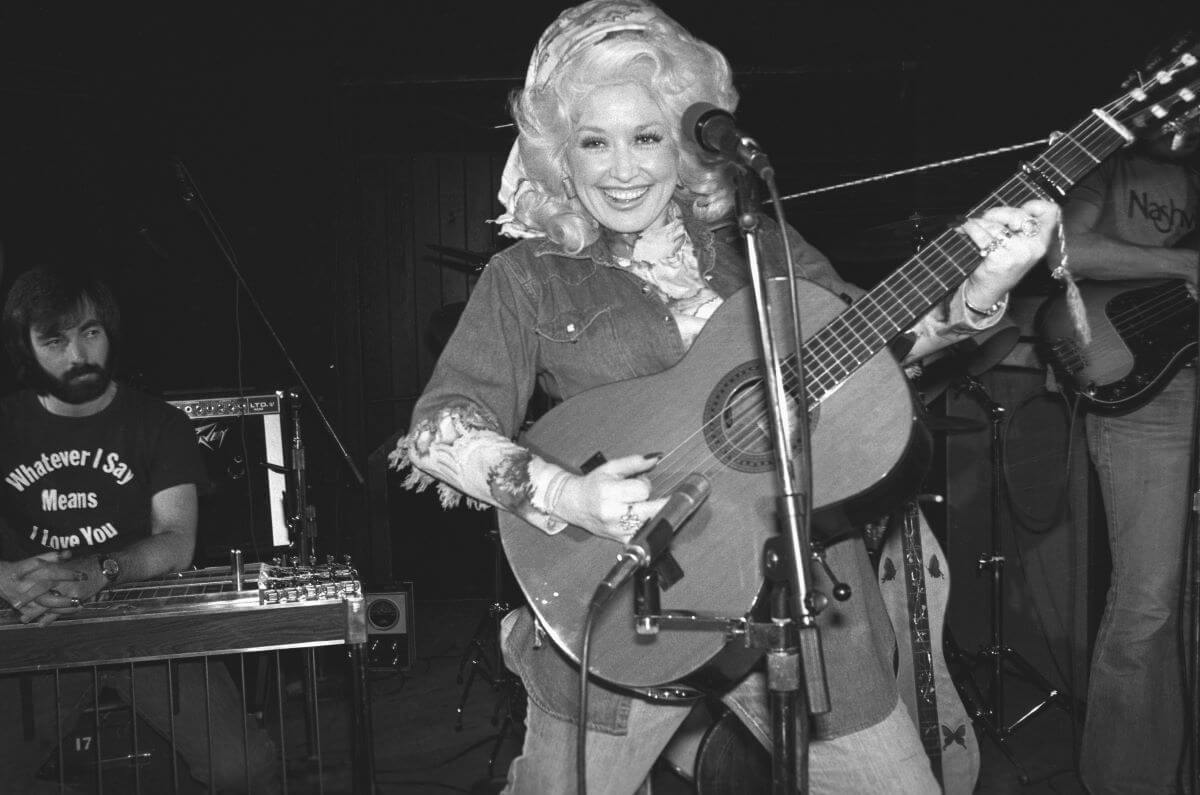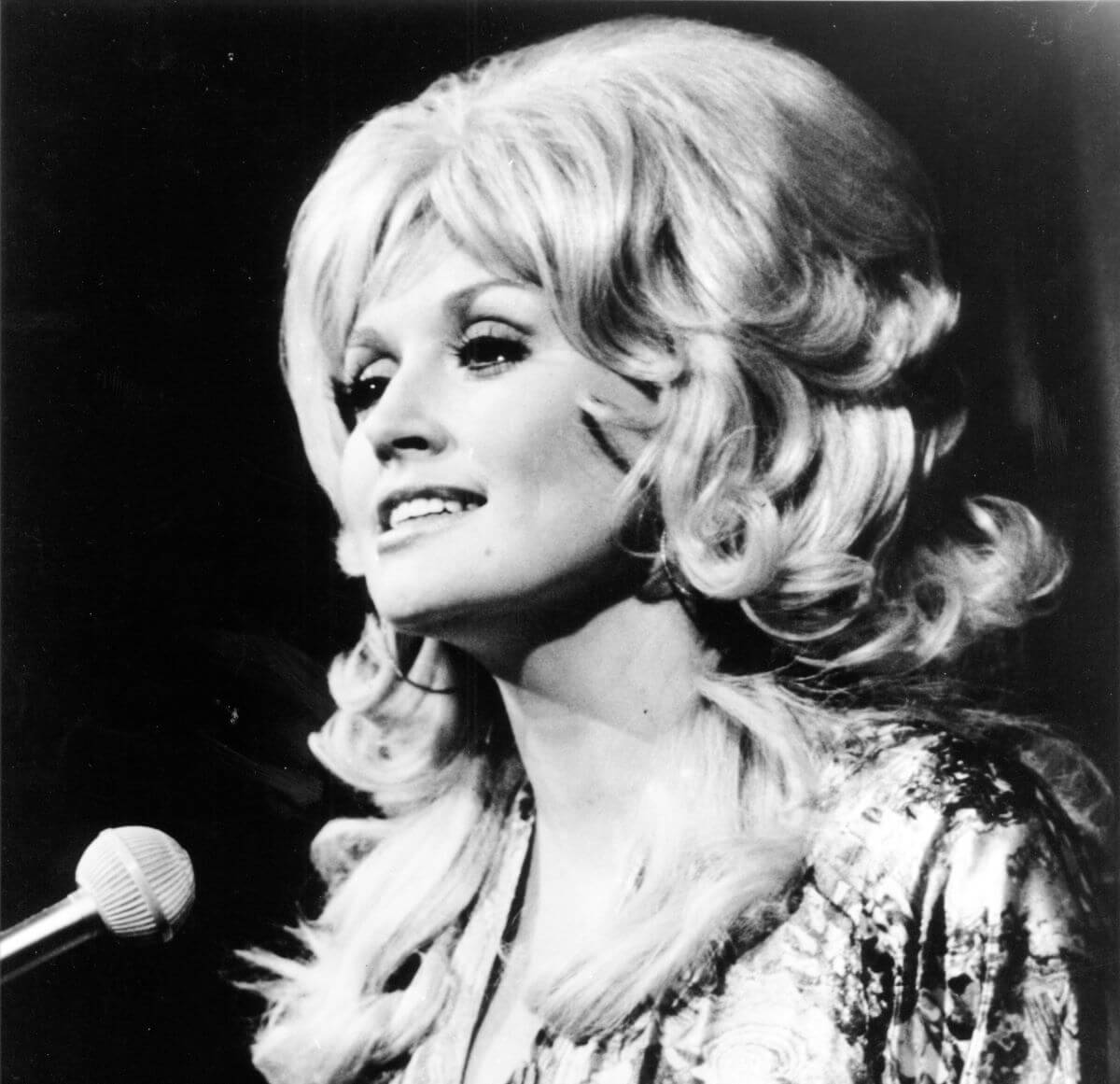In the 1970s, Dolly Parton embarked on long stretches of tours with her band. While she paid well, the work was hard and took people away from home for weeks at a time. Her band had a high turnover rate, though not because people tired of the schedule. Instead, Parton fired many of her band members in search of the perfect lineup.
Dolly Parton’s band didn’t feel safe in their jobs
As Parton worked to cross over from a strictly country audience to a mainstream one, she tried to make sure she had the perfect band to back her. This became a major point of concern for the people who joined her on tour. Her former guitarist, Don Roth, said Parton struggled to find people because of her reputation.
“First of all, everybody’s afraid they’re gonna get fired; there’s no stability,” he said in the book Dolly by Alanna Nash. “Because if she doesn’t like you, and chances are she won’t, she will fire you. If she doesn’t like your attitude, if she doesn’t get ‘good vibes,’ as esoteric as that is, from you on or off the stage, she doesn’t care if you’re the best player in the world. She’s not going to keep you in the group. She carries it to extremes sometimes.”

Her former band members estimated that Parton let go well over a dozen people.
“I’d say they’ve been through five or six guitar players — maybe more like seven or eight — five bass players, and I don’t know how many drummers,” guitarist Tom Rutledge said. “I was let go after six months, along with another guitar player and the drummer. Something to do with a management decision, or something in LA.”
One of Dolly Parton’s band members said the singer didn’t know what type of group she wanted
Rutledge believed Parton fired people if they didn’t fit the vision she had for her sound. The trouble was, he said, Parton didn’t seem to know what type of sound she wanted.
“She’s been trying to find ‘that’ sound. It’s kind of hard for me to say exactly what it is, because I don’t think Dolly knows,” he said. “She’ll know it when she hears it, though. That’s why it’s so hard.”
Rutledge didn’t hold a grudge against Parton after his firing. He understood that the decision was as much her management’s as her own.
“She said she was as happy with the band as she had ever been, but Katz-Gallin wasn’t happy with it, and she went along with their decision because they’re running the whole show now,” he said. “They say that Dolly’s different, that she can be sold and she’s a good product — if she’s packaged right. They saw it and they’re doing it. When I was let go, it was done very professionally, very cordially, good feelings on both sides.”
Her band leader began to shoulder much of the blame
Though Parton moved through band members quickly, it was never easy for her to fire people. While she initially shouldered the burden of firing people, it became too painful, and she passed it off to her band leader, Gregg Perry. As a result, many people around Nashville harbored resentment toward him.

“It really is too damned difficult for her to fire people when she loves them, and it may not be totally right for her to have somebody else do it, but Gregg was all too willing — always,” Roth said. “But he just does his job. A great deal of talk is going around town — ‘That son-of-a-b**** fired me.’ All the poor bastard did was make a phone call because he was told to.”
Parton and Perry had a close relationship, and he was willing to do practically anything for her.

